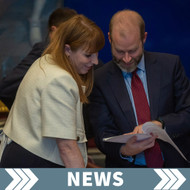Labour’s Youth Wage Reform Faces Industry Backlash
Posted by Emma on 8th Aug 2025 Reading Time:
Deputy Prime Minister Angela Rayner has instructed the Low Pay Commission to draw up plans to eliminate the £2-per-hour pay gap between 18–20-year-olds and older adults. Backed by trade unions, this proposal could see the current youth rate of £10 per hour rise to match the £12.21 adult minimum.
Labour’s move aims to “make low pay a thing of the past” and is pitched as a solution to rising living costs. But for hospitality businesses already under pressure from taxation and inflation, the proposal is triggering alarm bells.
Kate Nicholls, Chair of UKHospitality, has repeatedly warned that the industry is already on a knife-edge. Appearing on Episode 225 of The Ceres Podcast, she delivered a sobering assessment:
“You only increase pay for the lowest-paid if they can still have a job.”
It’s a reminder that wage policy without job security is a hollow promise. She went further:
“NICs disproportionately hit us. The response from businesses is that, to afford the NICs, they’ve had to cut staff hours, headcount, and shifts.”
These insights reflect the reality on the ground, where operators are reducing hours and scaling back opening times just to stay afloat. In the same episode, Nicholls cited new UKHospitality data:
“In direct response to National Insurance, a third of businesses were cutting their operating hours. 60% were cutting staff hours.”
This is not political theatre—these are the consequences of cumulative policy decisions.
A Disconnected Policy Landscape
Rayner’s minimum wage ambition is arriving just months after Chancellor Rachel Reeves lowered the employer NIC threshold to £5,000—a move that swept more part-time and youth jobs into tax liability. While the Treasury claims these changes are about fairness and growth, business leaders are calling for joined-up thinking.
“Government needs to carefully think about what it’s doing and think through the consequences of all of these policies and join the dots,” said Nicholls.
“NIC and National Living Wage are arguably pulling against each other.”
This contradiction, she warned, puts entry-level roles at risk across a sector that employs more than 3.5 million people, many of them under 25.
Hospitality: The Last Gateway for Young Workers?
The proposed wage alignment is framed as progressive, but hospitality insiders worry it may slam the door shut on youth employment altogether.
“We are a socially mobile sector,” Nicholls said on The Ceres Podcast.
“You don’t need a degree or experience to get a foothold in this industry and develop your skills.”
This inclusivity has made hospitality one of the last accessible rungs on the career ladder for thousands of young people, especially those from disadvantaged backgrounds. Raising the cost of hiring them may cut off that path.
Public Support, Political Strategy
Polling from YouGov shows strong support for equalising the minimum wage across age bands: 67% of respondents favour the change. But political motivations are also at play. Labour is actively courting younger voters while trying to outflank Reform UK, and Rayner has even proposed lowering the voting age to 16.
“This remit is the next milestone in our plan to get more money into working people’s pockets,” Rayner said. “We want to raise living standards in every part of the UK and get our economy growing.”
Still, the hospitality sector remains unconvinced that these measures are economically sustainable—or strategically sound.
These issues and more were unpacked in The Ceres Podcast, Episode 225, where host Stelios Theocharous and Kate Nicholls explored how tax, regulation and wage policy are reshaping hospitality in real time.
Nicholls urged operators and policymakers alike to recognise the social value of hospitality, not just its economic footprint.
“We create camaraderie, social spaces, and jobs with no barriers to entry. That matters, especially when a whole generation is at risk of being shut out of the labour market.”
It’s a timely and essential listen for anyone in food, drink or hospitality.
A Crossroads for Business and Policy
Labour’s promise of higher youth pay may resonate with voters, but it risks becoming a case of good intentions, bad outcomes. For hospitality businesses already grappling with rising costs, workforce shrinkage, and consumer caution, the policy could tip some over the edge.
As Kate Nicholls aptly put it:
“Fair pay is only fair if it pays—and that requires more than just slogans. It requires joined-up thinking.”
The Low Pay Commission’s recommendations, due in October, will decide how far—and how fast—these changes unfold. Until then, hospitality waits anxiously, hoping not to be the next casualty of one-size-fits-all policymaking.





